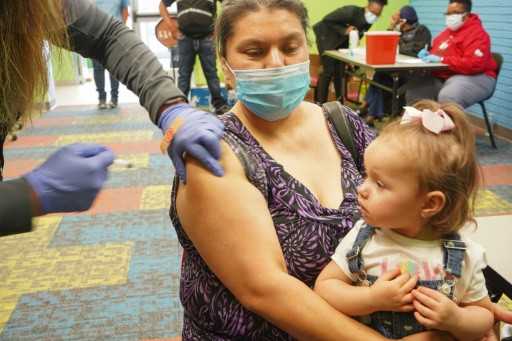As U.S. vaccine demand falls, states turn to new solutions
02 May, 2021

It's official: America's COVID-19 immunization campaign is stalling.
While vaccination programs are lagging badly in many countries -- if they've begun at all -- mass vaccine sites over the U.S. are closing because of dwindling demand, leaving the authorities exploring new methods to reach persons who haven't yet gotten a shot.
The national vaccination rate peaked around April 11, according to official data, and even though 55 percent of U.S. adults will have had a number of doses, there's still a long way to visit achieve population immunity.
The people most wanting to get their shots have, generally, already rolled up their sleeves and done so.
The challenge is achieving the rest.
In Texas, as in a lot of the country, vaccinations are in freefall. A huge federal site in Arlington, between Dallas and Fort Worth, shut its doors in mid-April as a result of insufficient numbers.
Two other federal sites, the NRG Stadium in Houston and Fair Park in Dallas, have ended their appointments system and now take walk-ups.
The NRG Stadium, wanting to ease the process, is now remaining open until nine o'clock in the evening instead of five, and vaccinating persons in their cars.
However, that site is only running at half capacity.
"We have the capability to see about 6,000 persons and at one point we saw up to 7,000 people. And now, it's dropped to 2,500 typically. So that is an enormous drop," said Martha Marquez, a spokeswoman for Harris County Public Health.
Authorities are considering more targeted approaches to reach people who are geographically isolated or think it is hard to attain vaccine sites.
Five mobile vaccination centers are actually crisscrossing those regions of the county with the highest number of positive cases.
"In a few days, we'll be increasing to 10 clinics," Ashlei Dawson, the state in charge of among the sites, told AFP, as she oversaw the training of new recruits.
Her own team had create for your day at the general public library in Pasadena, a mainly Hispanic suburb of Houston.
Members of the general public were only trickling in, and by midday just 27 people had received injections.
One of these, 55-year-old Jose Herrera, said, "I didn't do it before since it was too far away." He said he was also worried about side effects.
A large number of supermarkets and pharmacies around the town are actually advertising vaccinations.
But Herrera and his wife, Maria, were finally persuaded by their daughter, who works at the Pasadena library, to get theirs done.
Others remain in the "wait and see" camp.
Wyatt Gregg, a 31-year-old cowboy and rodeo coach from Borger, in the northwest of the state, told AFP he hadn't given the question much thought.
"More often than not, I am outdoors and not around people. When I need to travel by plane, at the airport, every person wears a mask."
The Covid vaccines "certainly are a new deal out there -- we don't possess long-term test results," he added.
But while there's been considerable attention paid to so-called anti-vaxxers, the group is really quite small, said vaccinologist Saad Omer, director of the Yale Institute for Global Health.
"Vaccine acceptance is on a spectrum," he said, so when people who are lukewarm to the thought of getting a shot face obstacles, they're less inclined to push ahead.
"One way to handle it really is increase their demand," said Omer.
The other way, he added, is to create vaccination very easy and accessible that even people who are on the fence say, "'Okay, let's take action.'"
Still, some population groups remain skeptical.
Among Republican voters, 29 percent say they will never take the vaccine, in comparison to five percent of Democrats and nine percent of independents, according to a recently available survey by the Kaiser Family Foundation.
White evangelicals are another increasingly important holdout group.
U.S. Surgeon General Vivek Murthy on Friday promised a fresh initiative to help persons get vaccines through their own doctors who, research shows, tend to be the most trusted messengers.
Omer said lessons could possibly be drawn from the way Black physicians and healthcare organizations helped overcome mistrust among African Americans.
"If someone has to castigate (the white evangelicals), it ought to be a white evangelical person, no outside person," he said, "a leader from the community who has the cachet to achieve that."
Source: japantoday.com
